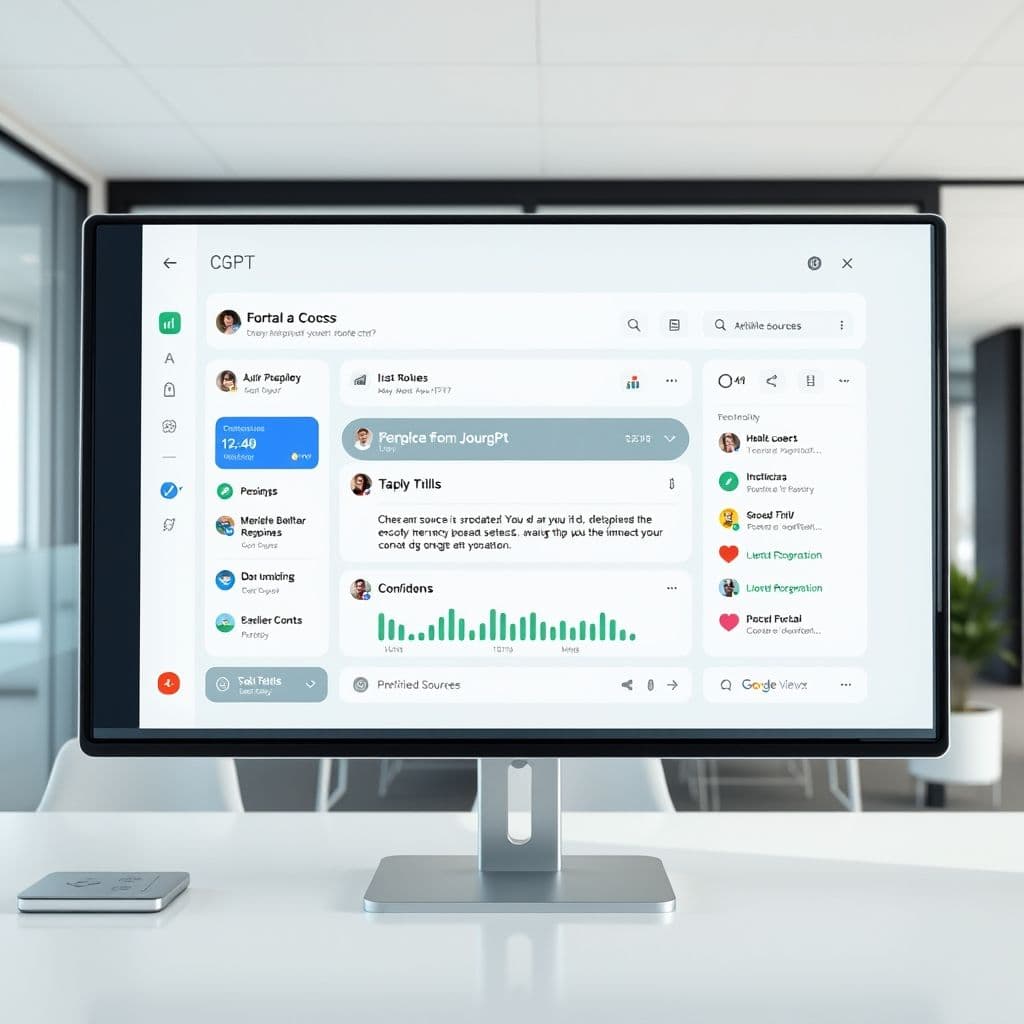The Hidden Risks of ChatGPT: Why Users Need Verified AI Responses

ChatGPT has become a go-to tool for everything from writing Instagram captions to analyzing medical data. But as users increasingly rely on it for critical tasks, concerns about its accuracy and reliability are growing. Many are discovering that the AI's responses, while impressive, aren't always trustworthy—especially when it comes to sensitive areas like health advice or financial discounts. This article explores the risks of unchecked AI reliance and introduces a potential SaaS solution to bridge the trust gap.
The Problem: Blind Trust in AI
Users are turning to ChatGPT for everything from medical diagnoses to financial advice, often without questioning the accuracy of the responses. Comments on viral TikTok videos reveal widespread frustration: discount codes suggested by ChatGPT rarely work, and users are uploading highly personal data—like ultrasound scans and DNA results—without considering the risks. While some find the AI's suggestions helpful, others are left disappointed or even misled. The core issue lies in the lack of verification; ChatGPT generates plausible-sounding answers, but there's no guarantee they're correct or safe to follow.

Idea of SaaS: A Verification Layer for AI
Imagine a SaaS tool that acts as a middleman between users and AI like ChatGPT. This service would cross-check AI-generated responses against credible sources—medical journals for health advice, retailer databases for discount codes, or scientific studies for DNA analysis. Instead of taking ChatGPT's word at face value, users would receive a verified report highlighting which parts of the response are backed by evidence and which might be speculative or inaccurate.
Key features could include real-time source citations, confidence scores for each claim, and alerts when responses conflict with established knowledge. For sensitive queries (e.g., medical or financial), the tool might require additional verification steps or direct users to consult human experts. The goal isn't to replace ChatGPT but to enhance its utility by adding a layer of trust—especially for high-stakes decisions.

Potential Use Cases
1. **Healthcare**: Users uploading blood tests or symptoms could get AI interpretations flagged with warnings like 'This suggestion conflicts with CDC guidelines' or 'Consult a doctor before acting on this advice.' 2. **Shopping**: Instead of unreliable discount codes, the tool could scrape live databases to confirm which codes are currently valid. 3. **Travel Planning**: AI-generated itineraries could be cross-referenced with weather data, event calendars, and transportation schedules to avoid logistical pitfalls. 4. **Personal Data Analysis**: For DNA or ultrasound scans, the tool could block outright guesses (like gender prediction) and instead direct users to certified medical professionals.
Conclusion
While ChatGPT offers incredible convenience, its limitations in accuracy and reliability pose real risks—especially as users delegate more critical tasks to AI. A verification-focused SaaS could empower users to harness AI's potential without falling prey to its pitfalls. By bridging the gap between AI-generated content and verified truth, such a tool might just be the next essential layer in our digital lives.
Frequently Asked Questions
- How hard would it be to build an AI verification tool?
- Technically challenging but feasible. The SaaS would need integrations with authoritative databases, NLP to map AI claims to verifiable facts, and a robust UI to present findings clearly. Partnerships with medical, financial, and academic institutions would be key.
- Couldn't ChatGPT just verify its own answers?
- Not reliably. AI lacks true understanding and may 'hallucinate' sources. An independent verification layer ensures objectivity by using curated, high-quality reference materials outside the AI's training data.
- What's the biggest risk of unverified AI use?
- Users acting on incorrect advice—like taking the wrong supplements based on DNA analysis or trusting a fake discount code. In sensitive domains (health, finance), the stakes are especially high.


